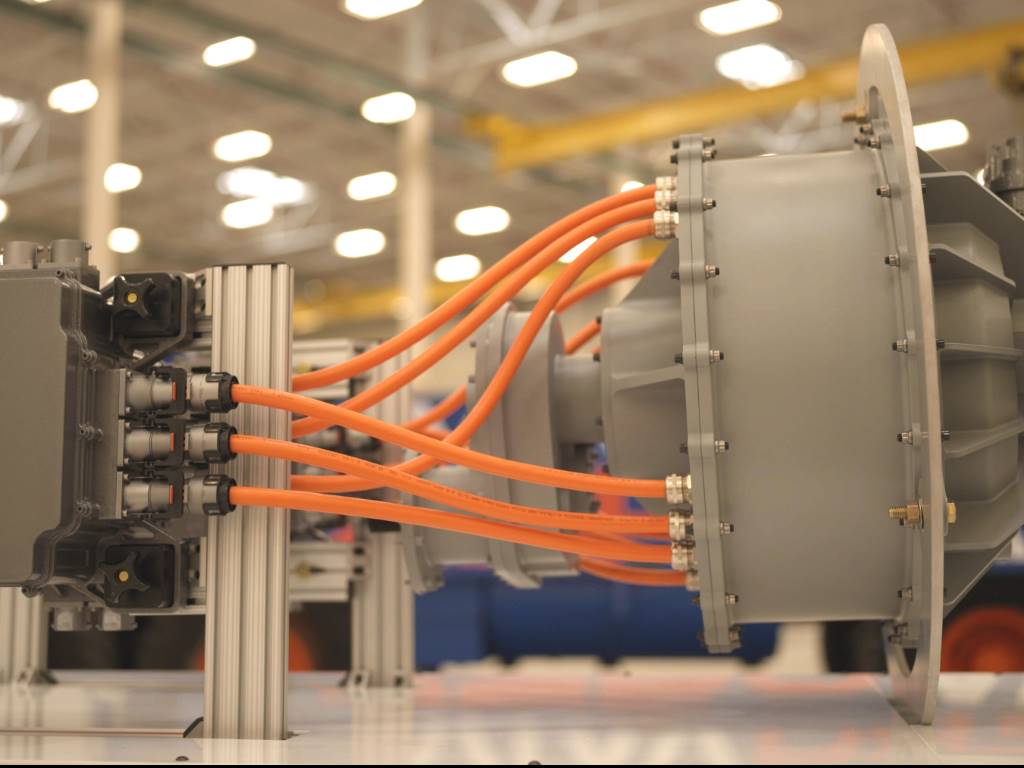Leaders never sleep
According to StarragHeckert Group's CEO, Dr Frank Brinken, overcoming the economic challenges that lie ahead calls for more flexibility across the aerospace supply chain and a strict application...
According to StarragHeckert Group's CEO, Dr Frank Brinken, overcoming the economic challenges that lie ahead calls for more flexibility across the aerospace supply chain and a strict application of the Six Sigma ‘do it right first time' philosophy. The civil aerospace industry is bracing itself for more turbulence as insecurity relating to the still huge backlog and questions regarding the financial strength of customers affect the production of passenger jets and corporate aviation alike. In addition to these market induced challenges, StarragHeckert has seen four recent trends within the aerospace manufacturing process: a move to more complex parts, the reduction in the number of suppliers, the globalisation of the supply chain and an increasing use of titanium in primary flight structures. All have a big impact on the specialist machine tool builders serving the aerospace industry as long-term manufacturing partners, whereas in the past, smaller suppliers have succeeded in producing small aluminium parts on relatively standard machines, often on a single shift per day basis assuring flexibility for fluctuations in demand. This industry is now moving to larger strategically located machine shops around the globe operating on a 24/7 basis. These manufacturing facilities have embraced the principle of Six Sigma in fighting variations, and the machine tool industry is reacting by developing specialised 5-axis machines with higher process capability and integrated process control, such as StarragHeckert's Service Assistance Module (SAM). Using onboard diagnostics, today's aircraft have their structural backbones manufactured on StarragHeckert machines with a similar real-time diagnostic ‘brain' monitoring and adapting process performance. Larger machine shops are rapidly moving towards automated manufacturing systems with large pallet storage facilities, almost eliminating set-up times and ensuring a flexible low cost ‘lights out' production environment. This requires plant supplier standardisation in order to have a smooth interoperability with the storage systems. Suppliers must ensure they have the training facilities and global service footprint, as preventive maintenance is often outsourced to the machine tool industry. StarragHeckert recognised the need for advanced training and proof of concept and working in parallel with the aerospace industry by investing in its aerospace Centre of Production Excellence (CPE). The CPE often serves our customers in the prequalification phase of product/program development, eliminating the need for substantial machine tool investment at an early stage. Operator and programmer training, as well as fixture qualification can be done simultaneously to the machine investment process, minimising ramp-up time at the customer's premises. Over the coming years, we will see a reduction in the number of machine tool companies serving the aerospace industry, and the days when machine tools were down for a week waiting for a service technician to arrive from Asia or Europe are definitely over. Meanwhile, the US container safety initiative and the recently added immigration burdens will further hinder a quick customer response. Financial transparency, financial strength with a healthy balance sheet and global footprint with qualified local service teams are a ‘must' for the future. Inevitably, consolidation must take place, leading to bigger specialised suppliers with much closer relationships to aircraft OEMs and tier 1 suppliers than before. The next technological wave will involve the increasing use of titanium for primary flight structures. This demands stronger machines with enhanced technology, notably different from mass produced machine tools developed for the mould and die and/or automotive industry. We will see the same tendency in titanium with a move to bigger, longer complex parts. The old vertical machine tool dinosaurs will be phased out due to lack of Six Sigma process capability and a new generation of horizontal machining centres with titanium machining capability will ensure the future competitiveness of dedicated titanium machine shops. Most likely we will see these machining centres also develop into highly productive multi-spindle machines. StarragHeckert is already on board and ready to take the flight into the titanium future! www.starragheckert.com













